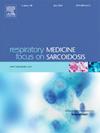Metformin use is associated with reduced systemic steroid courses among pediatric asthma patients with diabetes or elevated blood glucose levels
IF 3.1
3区 医学
Q2 CARDIAC & CARDIOVASCULAR SYSTEMS
引用次数: 0
Abstract
Background
Patients with asthma and abnormal glucose metabolism have increased asthma exacerbations, worse lung function, and higher health care utilization. Metformin, an insulin-sensitizing agent with anti-inflammatory properties, may modify these outcomes.
Objective
This study explored the association between metformin use and acute asthma exacerbations in children with asthma with elevated blood glucose or a type 2 diabetes diagnosis.
Methods
This observational study was conducted among children aged 10–17 years with asthma and evidence of type 2 diabetes, abnormal glucose, or serum glucose ≥200 mg/dL, using the Linked Network in TrinetX data. Two cohorts were constructed: a metformin treatment group and a comparison group without metformin. Groups were matched 1:1 using a propensity score algorithm on baseline characteristics. Negative binomial models were used to compare asthma-related healthcare utilizations and systemic steroid courses. Kaplan-Meier analysis using the log-rank test compared the time to-first asthma exacerbation.
Results
After propensity score matching, there were 536 children each in the metformin user and comparison groups. Metformin use was associated with a significantly lower rate of systemic corticosteroid courses, with a 42 % reduction compared to the comparison group (IRR = 0.58; 95 % CI: 0.40–0.85; p = 0.005). There was no difference in the median time to the first occurrence of asthma hospitalizations, ER visits, or systemic steroid courses between the metformin use and comparison group.
Conclusion
Metformin use was associated with a significantly lower rate of systemic corticosteroid courses, although no differences were observed in acute care utilization and in time to first asthma exacerbation.
在患有糖尿病或血糖水平升高的儿童哮喘患者中,使用二甲双胍可减少全身类固醇疗程。
背景:哮喘伴糖代谢异常的患者哮喘加重率增高,肺功能恶化,医疗保健使用率增高。二甲双胍是一种具有抗炎特性的胰岛素增敏剂,可能会改变这些结果。目的:本研究探讨了二甲双胍的使用与患有高血糖或2型糖尿病的哮喘患儿急性哮喘加重的关系。方法:这项观察性研究是在10-17岁哮喘和2型糖尿病、血糖异常或血清葡萄糖≥200mg /dL的证据的儿童中进行的,使用TrinetX数据中的Linked Network。建立了两个队列:二甲双胍治疗组和不使用二甲双胍的对照组。使用基线特征倾向评分算法对各组进行1:1匹配。负二项模型用于比较哮喘相关的医疗保健利用和全身类固醇疗程。Kaplan-Meier分析采用log-rank检验比较首次哮喘发作时间。结果:经倾向评分匹配,二甲双胍使用组和对照组各有536例患儿。二甲双胍的使用与系统性皮质类固醇疗程的发生率显著降低相关,与对照组相比减少了42% (IRR = 0.58; 95% CI: 0.40-0.85; p = 0.005)。在使用二甲双胍和对照组之间,首次发生哮喘住院、急诊室就诊或全身性类固醇疗程的中位时间没有差异。结论:二甲双胍的使用与全身皮质类固醇疗程的发生率显著降低相关,尽管在急性护理的使用和首次哮喘发作的时间上没有观察到差异。
本文章由计算机程序翻译,如有差异,请以英文原文为准。
求助全文
约1分钟内获得全文
求助全文
来源期刊

Respiratory medicine
医学-呼吸系统
CiteScore
7.50
自引率
0.00%
发文量
199
审稿时长
38 days
期刊介绍:
Respiratory Medicine is an internationally-renowned journal devoted to the rapid publication of clinically-relevant respiratory medicine research. It combines cutting-edge original research with state-of-the-art reviews dealing with all aspects of respiratory diseases and therapeutic interventions. Topics include adult and paediatric medicine, epidemiology, immunology and cell biology, physiology, occupational disorders, and the role of allergens and pollutants.
Respiratory Medicine is increasingly the journal of choice for publication of phased trial work, commenting on effectiveness, dosage and methods of action.
 求助内容:
求助内容: 应助结果提醒方式:
应助结果提醒方式:


